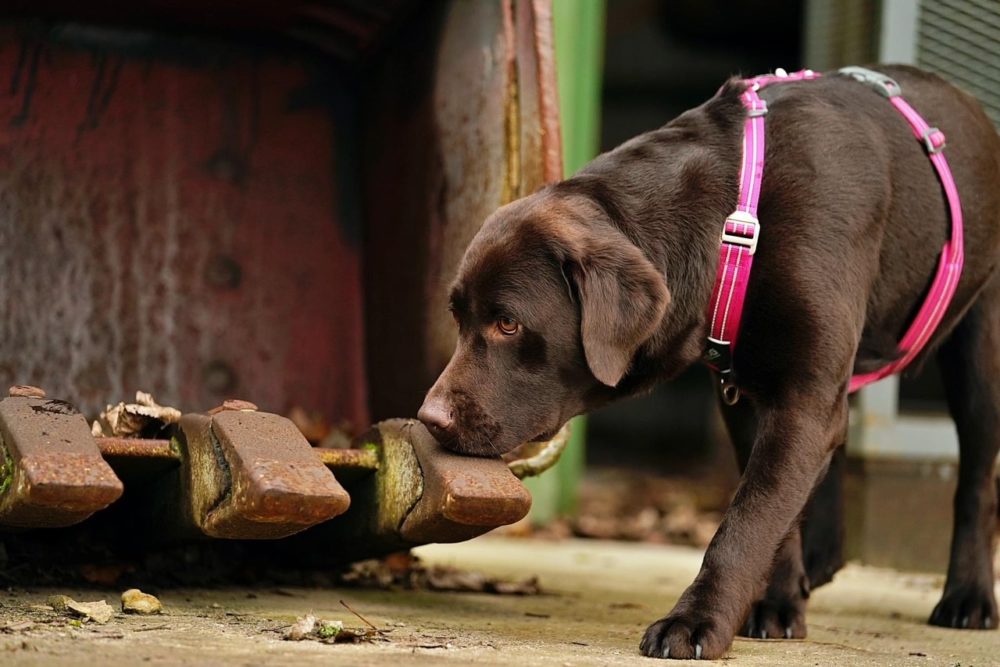Scent training could make pet dogs better behaved according to study

Scent training could make pet dogs better behaved, a new study by Aberystwyth University academics suggests.
The research suggests that pet dogs trained to detect smells have improved mental ability and capacity to carry out certain tasks.
Training is known to improve dogs’ ability to solve cognitive tasks, but previous research has focused on comparing highly trained working dogs, like those trained in search and rescue or assistance dogs, with untrained pets.
Cognitive tasks
The study by researchers from Aberystwyth University, in collaboration with Emma Stoker, owner of Puppy Plus in Newtown, suggests that even pet dog training can alter how our dogs cope with cognitive tasks.
The team tested the animals, who had been trained to varying degrees, with two tasks both requiring impulse control.
One was a test to navigate a transparent barrier to get food, known as the ‘detour task’. The other ‘A not B task’ involved the dogs being able to switch their choice from one pot to another, depending on where food was placed.
The study, published in the journal Animals, found that dogs trained in scent work performed better in these tasks than those who were not. The new research demonstrates that scent training can improve dogs’ ability to avoid acting impulsively to complete a specific task.
This ability, known as inhibitory control, has been shown to improve canines’ problem-solving skills.
Impulse control
Importantly for pet owners, poor impulse control is thought to be the cause of a lot of unwanted behaviours in dogs, such as destructive behaviour and inappropriate toileting. So, the new findings suggests that scent training could be a way for owners to improve their dogs’ behaviour.
The project is part of the Animal Science Master by Research (MRes) postgraduate teaching programme at Aberystwyth University.
Dr Sarah Dalesman, who co-supervised the project, said: “We are a nation of dog and animal lovers, and for good reason. They are very important for our lives and play a variety of roles – from offering vital companionship to working in the emergency services. For those and many other reasons, understanding their behaviour and what influences it is important.
“This research shows that dogs that train primarily in scent work have stronger inhibitory control, suggesting that this training can have a positive effect on their behaviour.
“Scent training is offered by a lot of dog trainers, and easy to practice at home. It might offer a great way for owners to improve their pet’s behaviour, and we’re aiming to test this theory in future studies.”
Dr Sebastian McBride from Aberystwyth University added: “This research is important in helping us understand how dogs’ behaviour is influenced by the extent that they have been trained. Based on our findings, future studies should not simply separate dogs into highly trained versus untrained, but rather take account of this relationship between specific training and behaviour.
“This exciting research would not be possible without all the volunteer dogs, their owners and local training clubs who participate, so we would like to thank them all for their support.”
As well as Drs Dalesman and McBride, MRes student in Animal Science Nerys Mellor conducted much of the research.
Support our Nation today
For the price of a cup of coffee a month you can help us create an independent, not-for-profit, national news service for the people of Wales, by the people of Wales.





